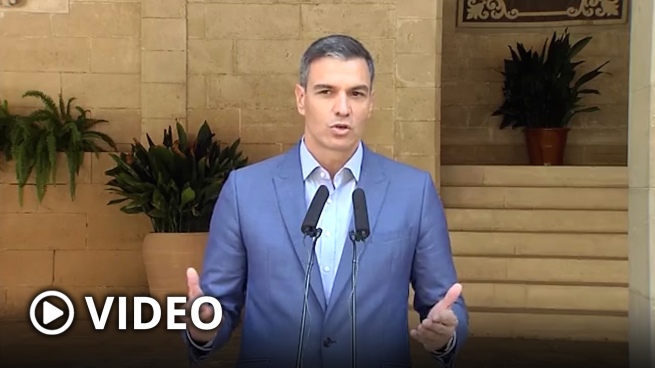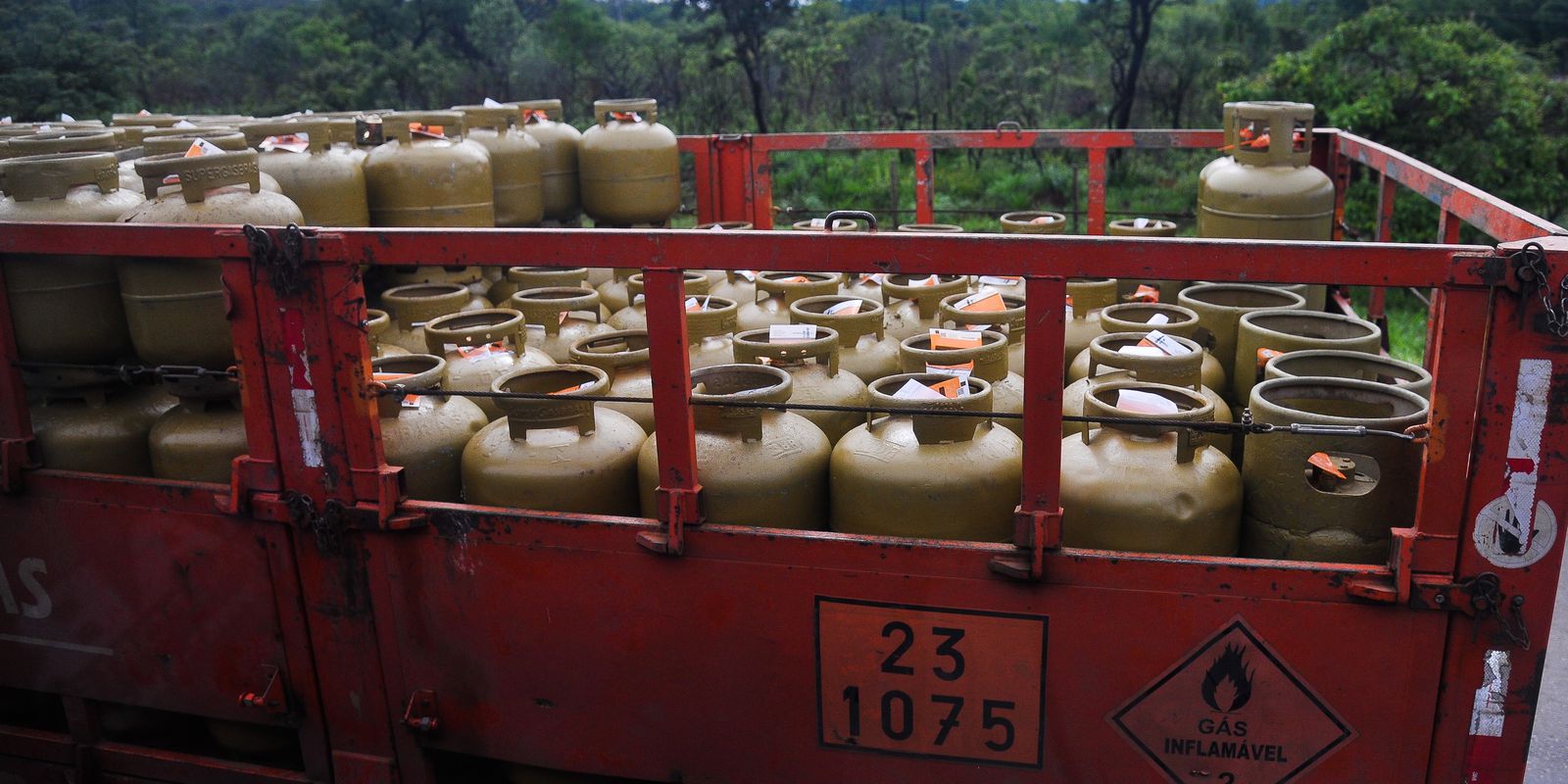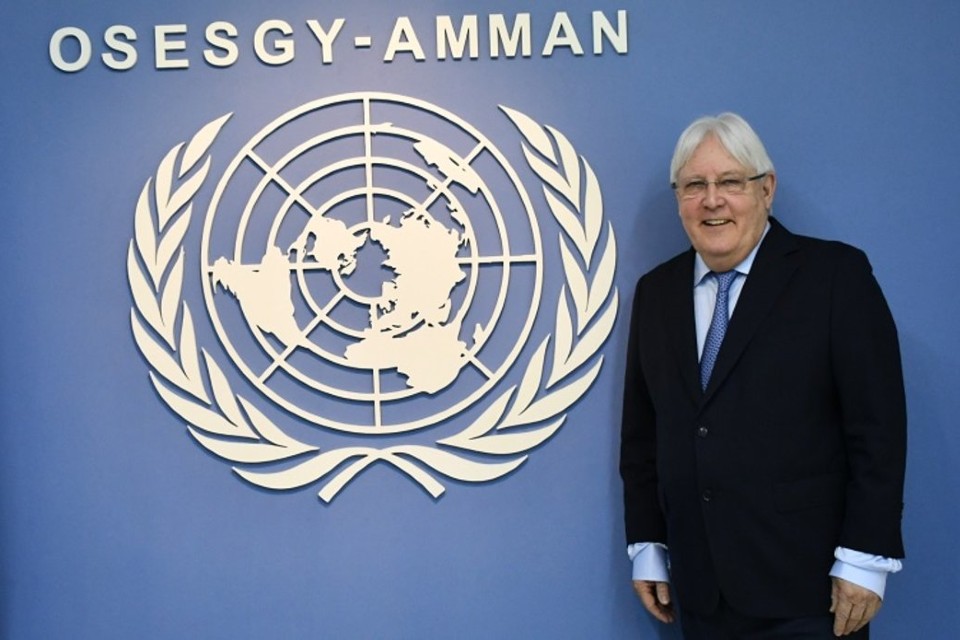The Government of Spain ordered energy saving measures due to the rise in the cost of electricity
WATCH VIDEO
Spain has just joined the initiatives arranged by other European countries and launched an energy saving plan to deal with the large rises in the cost of electricity, which were aggravated by the war between Russia and Ukraine and became one of the the engines of a global inflationary wave.
Since the Russian invasion of Ukraine last February, the price of energy has skyrocketed in the region due to sanctions and counter-sanctions between the European Union (EU) and the Kremlin, which have reduced the supply of oil, but especially gas. Russian, which until before the war represented more than 40% of imports of that fuel in the bloc.
“The gas situation in Europe is going from a ‘bad’ scenario to an ‘ugly’ scenario in the last month”warned a report by Bank of America on Monday.
According to this entity, Russia – the largest single supplier of energy in Europe – is “playing” with gas as a geopolitical weapon.
To avoid a shortage of gas in the boreal winter, various European nations began planning to ration supplies of this fuel and also launched various measures to save energy.
The Russian energy giant Gazprom reduced its gas exports by 31% towards countries not belonging to the post-Soviet Community of Independent States (CIS), including Europeans, according to figures from the last six months, which account for the changes caused by the invasion, with a redirection of supply to China and India.
Gazprom also cut flows from the Nord Stream gas pipeline, which links Russia and Germany across the Baltic Sea, to just 20% in July, a week after it cut them completely for a 10-day maintenance period.
This drop in gas volume threatens to further raise energy prices and increase inflationa few months before Europe begins to demand more supply due to the onset of the cold.
To avoid a shortage of gas in the boreal winter, various European nations began planning to ration supplies of this fuel and also launched various measures to save energy.
The last country to switch to energy economy mode was Spain, which on Monday adopted “an energy saving and management plan” to moderate air conditioning and heating in shops, cultural buildings and transport stations.
“In these buildings, the heating must be maintained at a maximum of 19 degrees Celsius in winter and at a minimum of 27 degrees Celsius in summer,” the head of the Ecological Transition, Teresa Ribera, announced at a press conference on Monday after a council of ministers.
The measures, already implemented since May for public dependencies and that will come into force in a week, include that monuments and shop windows turn off their lights at 10 p.m., while the automatic closing of doors in air-conditioned spaces will be required and It will promote teleworking to “save on travel and thermal consumption of buildings,” explained the minister, according to the AFP news agency.
France is preparing a savings plan that aims to reduce the energy consumed by 10% over the next two years -natural gas, electricity and fuel- compared to 2019
“Saving energy is everyone’s task and it is a priority,” said the President of the Spanish Government, the socialist Pedro Sánchez, who stated that lowering the energy bill contributes “to reducing dependence on the aggressor (Vladimir) Putin.”
Also France prepares a savings plan that aims to reduce the energy consumed by 10% over the next two years -natural gas, electricity and fuel- compared to 2019.
“We must prepare for a scenario in which we all live without Russian gas,” French President Emmanuel Macron said in mid-July, calling for a “logic of sobriety.”
Although the strategy is still under development, the Government He urged families and companies to make “small gestures” and disconnect energy devices while they are not in use or to turn off the light in empty rooms.
A policy promoted this week within the public administration by the Prime Minister, Élisabeth Borne, who sent an internal circular to implement “without delay” all the measures that allow “reducing energy consumption and accelerating the end of fossil fuels”, such as limiting the use of air conditioning and heating or encouraging the use of “sustainable” transportation for staff, among others.
Paris, meanwhile, enacted a municipal ordinance last month that prohibits air-conditioned premises from having their doors open under threat of a fine, an initiative already implemented by other cities such as Lyon.
Also, the supermarket and shopping center sector agreed on a protocol that provides for turning off the illuminated signs after closingSystematize the lowering of light intensity before the arrival of the public and reduce the lighting of the sales area when possible.
Similar measures were also launched in Germany, one of the European countries most dependent on Russian gas.
“No possibility can be excluded,” warned Economy Minister Robert Habeck, who argued that Moscow is using “the gas weapon” against Europe.
Faced with this situation, the Government seeks to save as much gas as possible to reach the fall with deposits at 90% of their capacity.
“Given the shortage of supply need to reduce demand“, assured Habeck and stated that “rationing” is inevitable.
The European Commission presented in May a plan for some 214,000 million dollars that foresees an acceleration of the transition towards renewable energies and energy savings to free itself “as quickly as possible” from Russian gas imports
In mid-July, the German Lower House adopted an internal energy saving plan for the winter, which limits heating to 20 degrees in the building and prohibits the use of water heaters, while the Government issued a series of recommendations to the population such as turning off lights, taking short showers or using the bicycle instead of the car.
The territories also launched various measures: Berlin decided to turn off the lights of its monumentslike northern Hannover, which also cut heating and hot water in public buildings, swimming pools and gyms until September.
Meanwhile, in southern Augsburg, the municipality decreed to turn off the traffic lights and a large part of the public lighting during the night.
Faced with the imminent shortage, the German government authorized in mid-July that the coal power plants (type of coal) of the so-called network reserve return to work to save natural gas, the DPA news agency reported.
The decree allows sale of electricity from coal or oil-fired reserve power plants until the end of April 2023in order to force natural gas out of the electricity market.
In addition to this directive, one is also being prepared for the resumption of the lignite plants that were going to close definitively at the beginning of October.
All these policies are part of the EU efforts to limit Russian gas imports.
In reaction to the war in Ukraine, the European Commission presented in May a plan for some 214,000 million dollars that foresees an acceleration of the transition towards renewable energies and energy savings to free itself “as quickly as possible” from gas imports. Russian.
Last week, the 27 Member States also adopted a plan committing themselves to doing “everything possible” to reduce their gas consumption by at least 15% between August 2022 and March 2023, compared to the average of the last five years of the same period.









